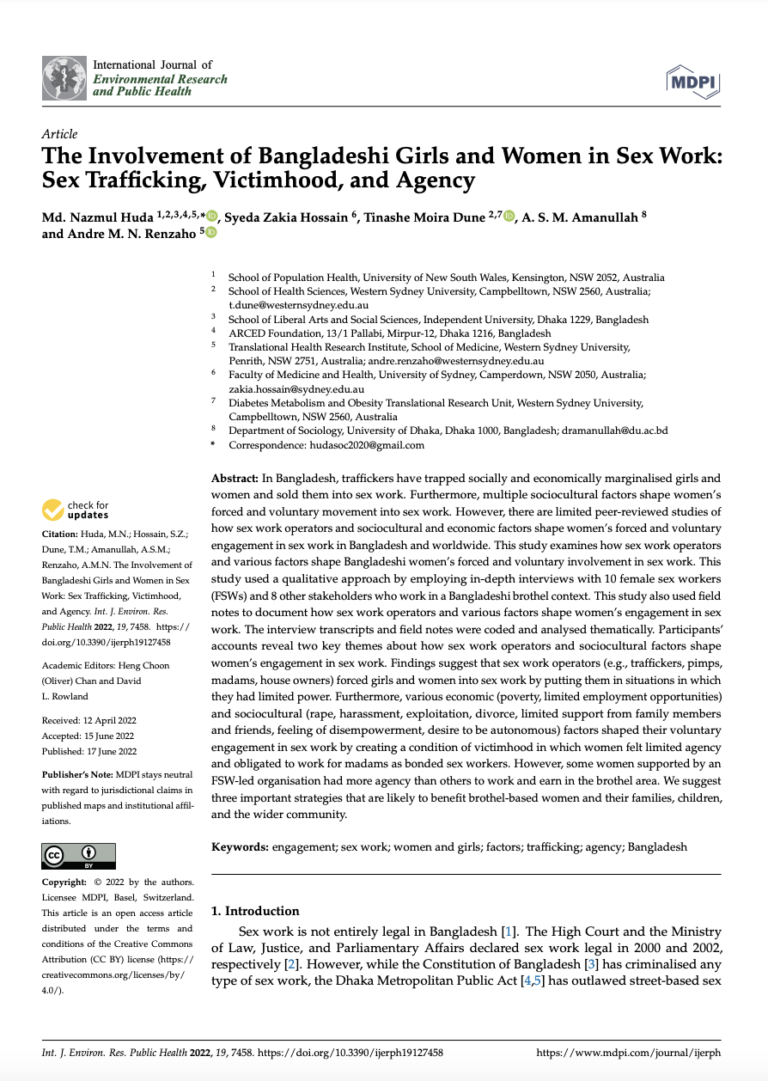In Bangladesh, traffickers have trapped socially and economically marginalised girls and
women and sold them into sex work. Furthermore, multiple sociocultural factors shape women’s
forced and voluntary movement into sex work. However, there are limited peer-reviewed studies of
how sex work operators and sociocultural and economic factors shape women’s forced and voluntary
engagement in sex work in Bangladesh and worldwide. This study examines how sex work operators
and various factors shape Bangladeshi women’s forced and voluntary involvement in sex work. This
study used a qualitative approach by employing in-depth interviews with 10 female sex workers
(FSWs) and 8 other stakeholders who work in a Bangladeshi brothel context. This study also used field
notes to document how sex work operators and various factors shape women’s engagement in sex
work. The interview transcripts and field notes were coded and analysed thematically. Participants’
accounts reveal two key themes about how sex work operators and sociocultural factors shape
women’s engagement in sex work. Findings suggest that sex work operators (e.g., traffickers, pimps,
madams, house owners) forced girls and women into sex work by putting them in situations in which
they had limited power. Furthermore, various economic (poverty, limited employment opportunities)
and sociocultural (rape, harassment, exploitation, divorce, limited support from family members
and friends, feeling of disempowerment, desire to be autonomous) factors shaped their voluntary
engagement in sex work by creating a condition of victimhood in which women felt limited agency
and obligated to work for madams as bonded sex workers. However, some women supported by an
FSW-led organisation had more agency than others to work and earn in the brothel area. We suggest
three important strategies that are likely to benefit brothel-based women and their families, children,
and the wider community.

